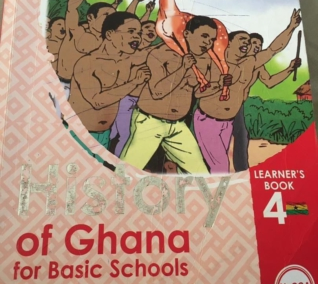Parts of the contents of a basic 4 history textbook has sparked controversy following concerns raised by some parents of the Christian faith.
The Frnacis Benjamin Appiah and Henry David Appiah authored book titled History of Ghana for Basic Schools has a section if it highlighting some negative effects of Christian missionary activities.
Among the points stated in the book is that Christianity has led to an increase in poverty in Ghana.
The book goes on to attribute the physical and doctrinal disputes in Ghana as by-products of religion.
The contents has created worry among some parents and ignited a debate regarding how Christianity and religion as a whole are portrayed in the National Council for Curriculum and Assessment (NaCCA) approved book.
Some Civil Society Organisations in the education sector such as Eduwatch and the Institute for Education Studies (IFEST) have also raised concerns about such a book being approved by the curriculum gatekeepers, NaCCA.
For Divine Kpe, the Programmes Director of Eduwatch, the purpose of that section is aimed at developing the young one’s minds to critique the effect of European missionaries in Ghana.
READ ALSO: ‘The Bible was written with an agenda – Prophet Amoako Attah
READ ALSO: Read your Bible, you’ll have answers to resolve the economic crunch – Anglican Bishop to Akufo-Addo
“When you look at the basic 4 curriculum for Religious and Moral Education, that particular objective for which the authors are writing to is about the pupils debating the effect of Christian missionaries or European missionaries in Ghana, some of their effects.
“So it’s actually expected to be a debate that the pupils were to have. In so doing, I think the authors were trying to generate ideas that the people can raise in terms of their debate,” he said on Accra-based television, JoyNews on Thursday, May 25, 2023.
The Director, however, contended there were inaccuracies in some of the points.
Mr. Kpe also said the inaccuracies breached some standard NaCCA guidelines given to publishers who submit their books for validation. This includes the criteria of accuracy, currency of the content matter, and relevance of the content to the curriculum.
He criticised the authors for a subpar work and blamed the NaCCA for failing to fulfill its mandate to allow the books on the market.
Meanwhile, a Deputy Spokesperson for the Ministry of Education, Yaw Opoku Mensah indicated on the same medium that the book in question was not the official one approved by the NaCCA.
He claimed the approved version of the book did not have that section in question per the information given him by the NaCCA.
Dr. Peter Anti, the Executive Director of IFEST, however, insisted the book in question had been approved by NaCCA.
“There is a published document of about 66 pages that lists all the books that have been approved by NaCCA and this document is there. It’s on page 56, so this book is approved,” he stressed.
Dr Anti added that the publishers should be placed on a blacklist by the NaCCA and given the appropriate punishment if, indeed, the book in circulation on the market was not the one that had been approved by them.
READ ALSO: ‘National Cathedral a money laundering scheme, an illegal transaction’ – Kofi Koranteng












